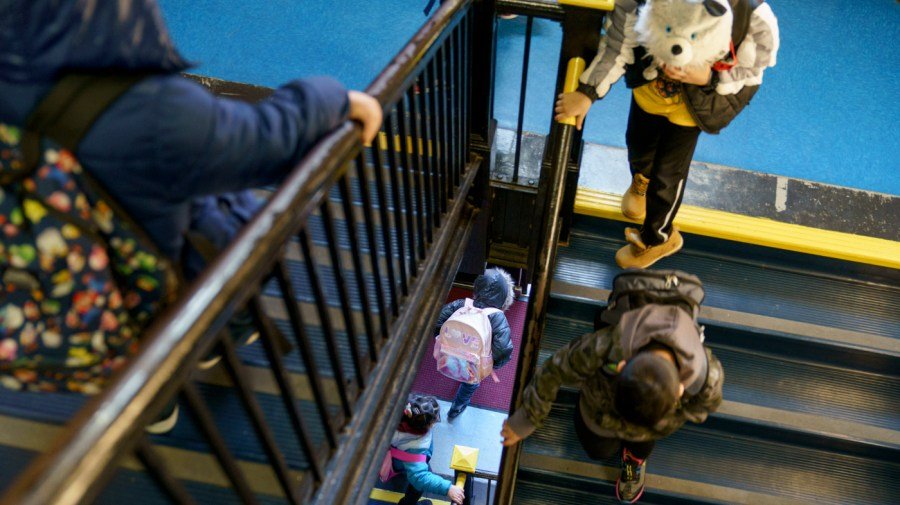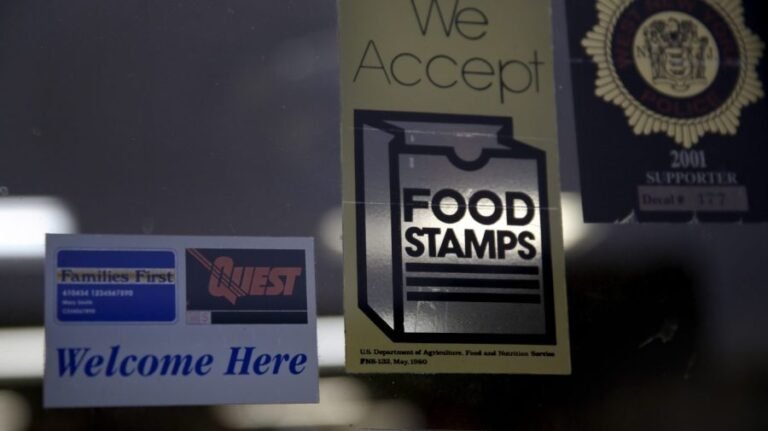
We have a problem in the U.S., and it’s long-past time to address it. Scores on the latest Nation’s Report Card, released earlier this month, reveal that policymakers, education leaders and others who shape our public school system aren’t focused enough on science.
Eighth-grade students nationwide experienced large declines on science on what is officially known as the National Assessment of Educational Progress. The release also spotlighted drops in high school math and reading, subjects that have received a lot of attention for declining scores in earlier grades.
But we need to consider these science scores as a wake-up call, too.
STEM fields are growing faster than other segments of the workforce, and students need a strong foundation in science to be successful in well-paying jobs of their choice after they leave school. What’s more, so many of our big problems, from environmental issues to health challenges, require science-based solutions.
About a third of students nationwide scored at the National Assessment of Educational Progress Proficient Level on the science assessment. That’s not enough.
It’s also similar to our state test results in Rhode Island. Just about a third of our students also met or exceeded expectations on our state assessment in science, which students take three times — in elementary, middle and high school.
On multiple measures, about two-thirds of students are missing the mark. But we have an opportunity to change that.
In Rhode Island, we include state science assessment results in our academic accountability standards, meaning that they’re calculated into a school’s public rating. It’s not required under the federal Every Student Succeeds Act, but we value science and believe that more states should consider doing this.
Of course, holding schools accountable for the science achievement of our students also requires providing them with support. In line with our commitment to implement high quality curriculum statewide, the Rhode Island Department of Education is helping schools and teachers access high-quality instructional resources in science, since those are generally harder to find and can be more expensive than math and reading materials.
We’re also providing science-related professional development to teachers. We’re starting with middle and high school teachers and then will bring this training to our elementary educators.
Students surveyed on the Nation’s Report Card say they’re spending less time on scientific inquiry-based learning experiences like designing experiments to answer a research question. As part of Rhode Island’s newly adopted Readiness Based Graduation Requirements, we’ve also strengthened our science-related graduation requirements to help students better prepare for STEM pathways in college and careers.
For example, we now specify that students must have several lab classes during their high school years, something Rhode Island was previously silent on. It’s a problem. Research shows this approach improves achievement in science, so let’s embrace it.
The National Assessment of Educational Progress’s survey data also shows students are enjoying science class less than they have in the past and are less likely to see how what they’re learning will help them outside school. With our new graduation requirements, Rhode Island has reimagined the high school experience to be more engaging and rewarding, whether students choose college or career.
One way to address that and bring science to life for students is through career and technical education. I’m not talking about career and technical education of the past. Our state has made a big bet on high-quality and innovative career and technical education that fuels high student academic achievement graduation and rates.
Rhode Island schools offer more than 318 career and technical education programs for middle and high school students; that represents a 60 percent increase since 2019. Students are seeking out these real-world courses, the vast majority of which connect to high-demand and emerging STEM fields.
Rhode Island schools also are integrating more STEM learning into the school day. For example, my team and I are working to help English Language Arts teachers weave science-based nonfiction into their curriculum and connect math teachers with authentic science data that students can use for graphing and statistics lessons.
We’re also looking outside the traditional school day to bolster science, emphasizing it in our summer school and after-school programs. And we’ve built partnerships with the business community, higher education institutions and nonprofits around these efforts.
Those of us who care about education — from teachers and families to workforce leaders and policymakers — have to mobilize to improve science education for our students.
By working together, adopting new approaches, and committing to progress in this critical subject we can set our children on a path toward successful futures. It’s what they deserve, and it’s what our country needs.
Angélica Infante-Green is the Rhode Island commissioner of Elementary and Secondary Education. She also serves on the National Assessment Governing Board, which sets policy around the Nation’s Report Card.


